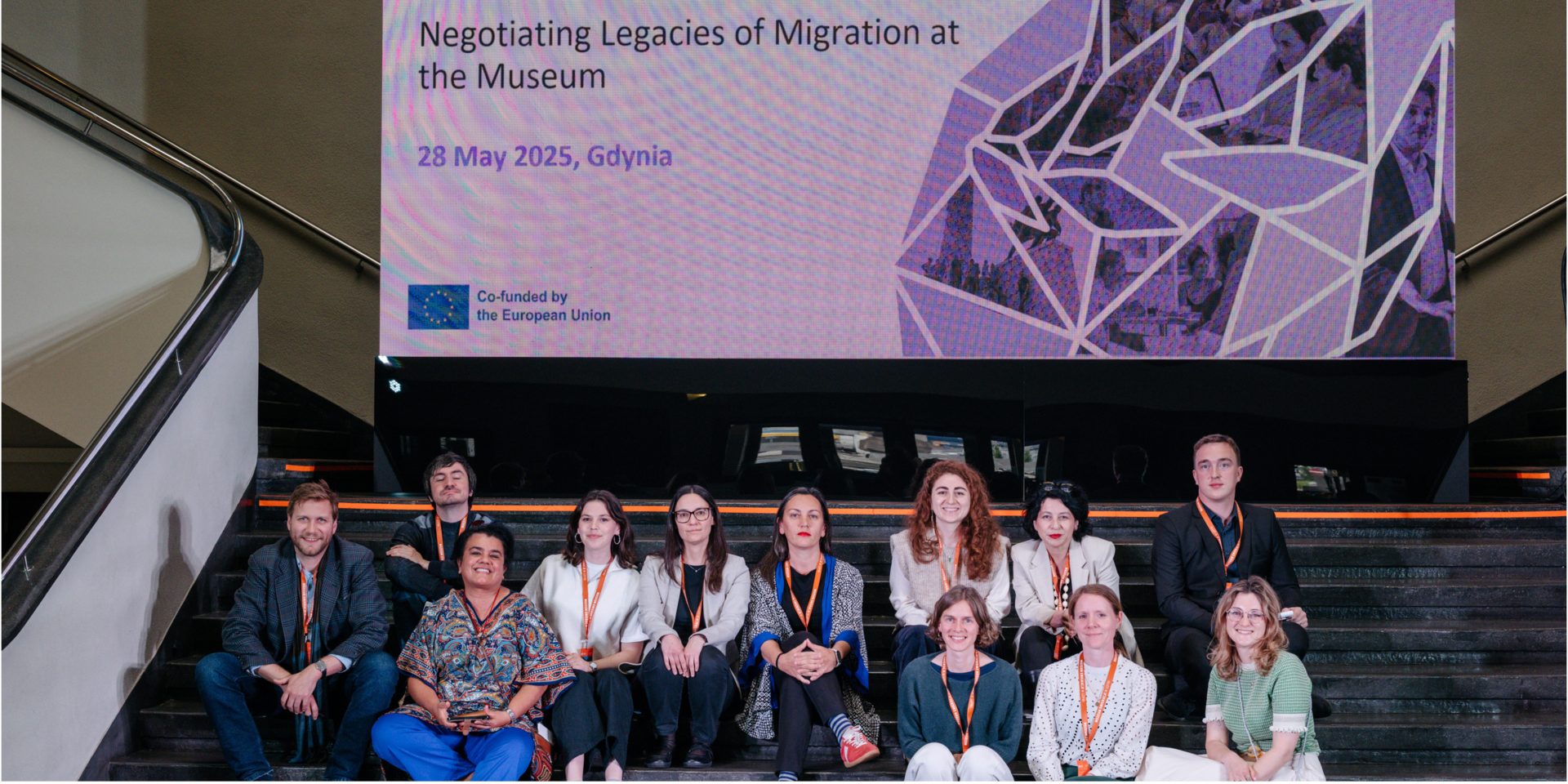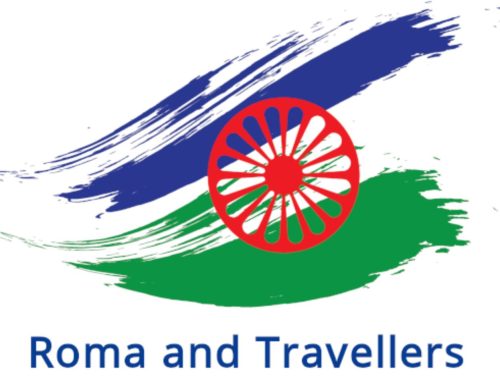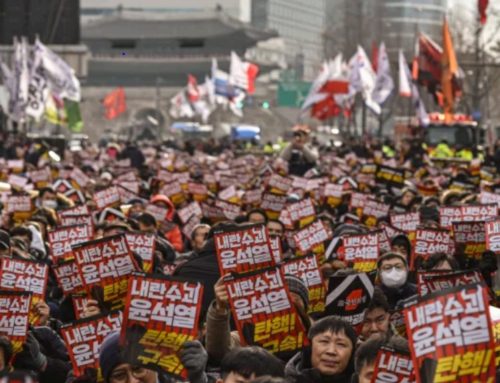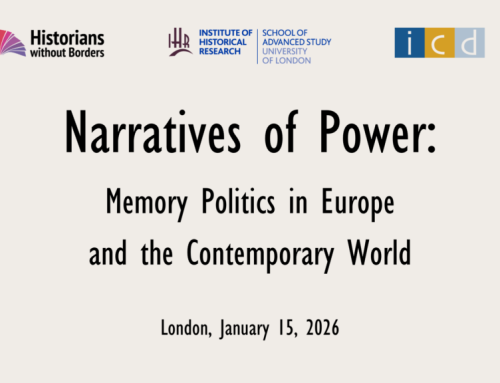EuroClio’s latest partner project, Moving Europe – Negotiating Legacies of Migration at the Museum, is off to a great start! The consortium were fortunate to meet for the project’s kick-off at the Emigration Museum in Gdynia which hosted an international museum congress on the theme of ‘Resistant and Resilient’ in May. Speakers discussed how museums navigate through times of crisis, and we explored a range of important topics, from decolonisation to the role of museums during conflict and their provision of shelter and social security.
The exploration of museum responsibility tied neatly to the presentation of Moving Europe, which seeks to empower museums, school teachers and young people to negotiate legacies of migration. Through local and international youth programmes, international peer-learning events for museum educators, and research into misconceptions and myths about migrants, Moving Europe aims to increase awareness about the complexities of migration and invites the general public to challenge their own prejudices. Our partners will work directly with local students through place-based learning at the museum, enabling students to co-create their own exhibitions, podcasts and a trans-European source collection.
During the kick-off we spoke to Agata Tokarczyk, who works for the Cultural Projects Department of the Emigration Museum in Gdynia.
Anna Roizes: Why did the Emigration Museum in Gdynia decide to join the Moving Europe project?
Agata Tokarczyk: The Moving Europe project is very important to us because it’s an educational project, and we believe that museums can be powerful spaces for young people to explore and better understand the history of migration, especially connecting to their own cities and communities. This year the Emigration Museum in Gdynia has its 10-year anniversary, which is a moment to think about what has changed during the past 10 years and focus on new educational approaches. We hope to learn something new and put it into practice. Moving Europe is also a great opportunity to work with other partners and exchange our experiences with museum education.
Anna: What kind of work will you be doing as part of the Moving Europe project?
Agata: A main responsibility for us was this kick-off event. We’re starting the project, getting to know each other and meeting in person. We have talked about our experiences, our work, our projects with students and young people. The Emigration Museum in Gdynia is also involved in the project’s museum residencies, which we’re really happy about because it allows us to visit the other patterns and explore new ways of teaching and thinking. [The museum residencies provide job-shadowing opportunities for museum educators in an international exchange of ideas and experiences.]
Anna: We’re here for the Moving Europe kick-off event, which coincided with the Emigration Museum in Gdynia’s congress. The theme was ‘Resistant and Resilient’; how does migration tie in with this theme?
Agata: It’s a huge topic, we’ve had two days of the congress and three panel discussions just today. We have thought and talked about whether there is a possibility for museums to be shelters during our times. We have wars, climate change, political problems. People are moving all the time. So I think this is a great opportunity to think about this movement of people, to think about how we can help them, how we can learn from their culture and create new projects. We just want to be open and friendly.
We have a lot of projects and events for the local community, but also for people from Ukraine, who represent the largest group of migrants in the Polish Tricity area. During the Congress, there was a dedicated panel on Ukraine — it was both emotional and deeply important. The war and the humanitarian crisis are happening right now and right next to us. It reminds us of how crucial it is to stay engaged, show solidarity, and reflect on the role of cultural institutions in times of crisis.
Anna: How do you see the role of museums when it comes to History education?
Agata: At the Emigration Museum in Gdynia we have our main exhibition and objects, but we also have stories of people. We offer a rich educational program for people of all ages and backgrounds. History can be learned by experiencing it. We also run engaging cultural projects that invite people to take part and create together. The activities of the Emigrant Archive bring us closer to the stories and journeys of migrants. Our interviews share the emotions and stories of people who migrate. For us, it’s important to tell these stories because everyone is a migrant; everyone has some experience with immigration. It’s such a big topic to talk about, and museums introduce people to a wider view point.













